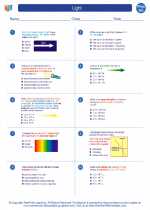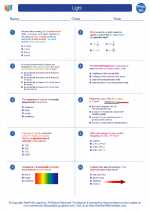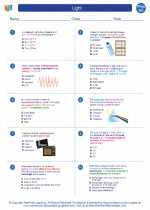Synthesis Reaction
A synthesis reaction is a type of chemical reaction in which two or more simple substances (elements or compounds) combine to form a more complex product.
General Form of Synthesis Reaction
The general form of a synthesis reaction is:
A + B → AB
Where A and B are the reactants, and AB is the product.
Examples of Synthesis Reactions
Some common examples of synthesis reactions include:
- Combination of elements: 2H2 + O2 → 2H2O
- Combination of an element and a compound: C + O2 → CO2
- Combination of two compounds: CaO + H2O → Ca(OH)2
Key Characteristics of Synthesis Reactions
- Synthesis reactions are characterized by the formation of a single product from multiple reactants.
- They are often exothermic, meaning they release energy in the form of heat.
- Synthesis reactions are commonly used in the synthesis of various chemical compounds and materials.
Study Guide
To understand synthesis reactions better, it's important to focus on the following key points:
- Identify the reactants and products in a synthesis reaction.
- Understand the general form of a synthesis reaction and recognize different types of synthesis reactions.
- Learn to balance synthesis reactions using the principles of conservation of mass.
- Practice writing and predicting the products of synthesis reactions based on the given reactants.
- Explore real-world examples of synthesis reactions and their applications in various fields such as chemistry, industry, and manufacturing.
By mastering the concept of synthesis reactions, you'll be able to analyze and predict chemical reactions more effectively, and apply this knowledge to practical scenarios in the field of chemistry.
.◂Physics Worksheets and Study Guides High School. Light
The resources above cover the following skills:
PHYSICAL SCIENCE (NGSS)
Waves and Their Applications in Technologies for Information Transfer
Students who demonstrate understanding can:
Use mathematical representations to support a claim regarding relationships among the frequency, wavelength, and speed of waves traveling in various media.
Evaluate the claims, evidence, and reasoning behind the idea that electromagnetic radiation can be described either by a wave model or a particle model, and that for some situations one model is more useful than the other.



